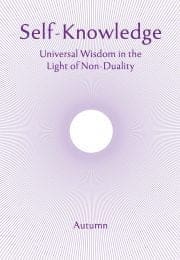Open Wide the Mind’s Cage Door
All of us like to feel we are free. We do not welcome those situations, people and places that make us feel hemmed in or restricted. For instance, if we were to be told that for health and safety reasons, the doors of our meeting room were to be locked, preventing exit for a short while, the announcement would probably cause some psychological discomfiture. None of us likes to be caged in.
If we are fortunate enough to enjoy a large measure of physical freedom, we may take it for granted, and forget to feel thankful for this great benefit. It is only when we compare our position to those who lack this freedom, that we may remember to count our blessings and seek to share them with others. When our thoughts and conduct flow for the general good, our sense of freedom will deepen and spread its influence in our mind.
This is not to deny that our own body, even when enjoying its liberty, can sometimes feel as if caged in, due to the pains that are bound to visit us in the course of life. These challenges invade our thoughts and sometimes curtail our freedom of movement. So we seek out ways and means of avoiding them, taking steps to banish pain and restore our freedom.
The injunction to ‘open wide the mind’s cage door’ suggests freedom is possible in the world of our thoughts. Our thought world, being private and known only to ourselves, appears to be already free in its privacy. In a tyranny, there will be those employed to police our thoughts, but thought can never be monitored directly, except by oneself. And yet we know that, in spite of this seeming freedom, much of our mental activity is painful, forcing us to seek escape in distractions of various kinds.
What are these painful mental states? These may include fatigue, boredom, melancholy, anxiety, tension, despair, depression and disappointment. As well as these well-known robbers of inner peace, there are also the narrowing effects of mental states that subtly overpower us without our being aware of the takeover or of the way they lower our consciousness. These mental shadows include conceit, envy, jealousy, greed, pride, resentment and thirst for revenge. Since most people live in an aura of secret self-approval, we may even regard such feelings as strengths rather than limitations. But the more mature view is to recognise that these tendencies are also a kind of inner bondage which cuts us off from true happiness.
So our quest for inner freedom goes far deeper than the need to banish negative moods or anti-social passions. We really need to establish ourselves in a state of satisfaction, tranquillity, ease of heart, resilience and self-sufficiency based on our own true being and not on external aids.
Subscribe or enrol for free guest access to read all of this article and Self-Knowledge online.
Already subscribed or enrolled? Log in:


